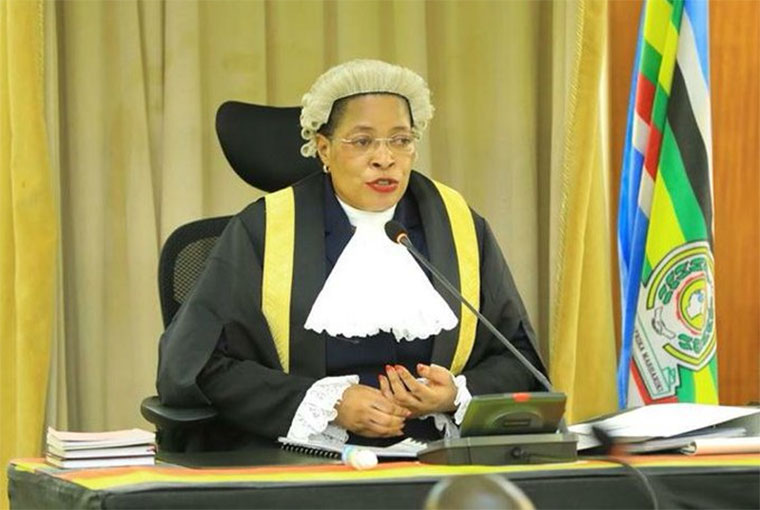Speaker Upholds Mpuuga’s Position on Parliamentary Commission
According to the Administration of Parliament Act and the Rules of Procedure, commissioners can only vacate their positions due to reasons such as incapacity, misconduct, or incompetence.

In a recent development, Speaker Anita Among has reinforced Mathias Mpuuga’s membership on the Parliamentary Commission, despite a move by the National Unity Platform (NUP) to remove him from the position.
Among cited legal grounds, under Parliament’s rules of procedure emphasizing that once elected by Parliament, commissioners serve the entire body and cannot be recalled by individual parties.
Speaker Among highlighted the legal framework governing the appointment and removal of parliamentary commissioners under rule 110 of their guidelines. According to the Administration of Parliament Act and the Rules of Procedure, commissioners can only vacate their positions due to reasons such as incapacity, misconduct, or incompetence.
NUP had initially nominated Mpuuga as Commissioner of Parliament but later sought to withdraw his nomination, alleging his involvement in acts of corruption and abuse of office. The NUP’s top organ NEC nominated Francis Zaake, the Mityana Municipality MP to replace him.
In a letter dated March 18, 2024, the NUP Secretary General informed the Speaker of Parliament about the party’s nomination of Mathias Mpuuga as a Commissioner of Parliament, citing relevant legal provisions.
However, the NUP later withdrew Mpuuga’s nomination and recalled him from the position. The party accused Mpuuga of involvement in corruption and abuse of office, alleging irregular allocation of funds during a meeting chaired by Speaker Among.

Mpuuga purportedly received a substantial sum of 500 million shillings from these funds. Despite demands from NUP for Mpuuga to return the money, apologize, and step down, he has not complied. NUP asserts that Mpuuga’s actions are contrary to the party’s mission and values.
The Speaker explained that the commissioners, once elected by Parliament, serve the entire body and can only vacate their position or be removed by the law.
“Parties do not possess the necessary legal authority to recall a commissioner once elected by Parliament. The aforementioned letter fails to meet the requirements of rule 110 of the Rules of Procedure and is thus incurably defective. she said.
Adding that: “Granting your request would amount to restraining the authority vested in the House, as clearly stated in section 5 of the Administration of Parliament Act,” she stated, referring to a precedent set by the Constitutional Court of Uganda.”
The Speaker pointed out procedural flaws in NUP’s request, stating that the letter did not meet the requirements outlined in the Rules of Procedure. She warned against bypassing established legal procedures, cautioning of potential legal consequences.
Rule 110 of the Parliamentary Rules of Procedure outlines the process for the removal of a Commissioner from office. A Member of the Commission, excluding certain specified officials, may be removed by Parliament for reasons such as incompetence, misconduct, insanity, or inability to perform duties due to physical or mental infirmity.
The procedure for initiating the removal process requires a written notice signed by at least one-third of all voting Members of Parliament, indicating their intention to move a motion for the Commissioner’s removal. This notice must specify the grounds for the motion and provide supporting particulars.
Once the notice is submitted to the Clerk of Parliament, the provisions of Rule 107, which pertain to motions of censure, apply with necessary modifications to the removal of a Commissioner. The motion for removal is then placed on the Order Paper, with a waiting period of fourteen days from the date of communication of the notice to the Clerk.


Comments are closed.